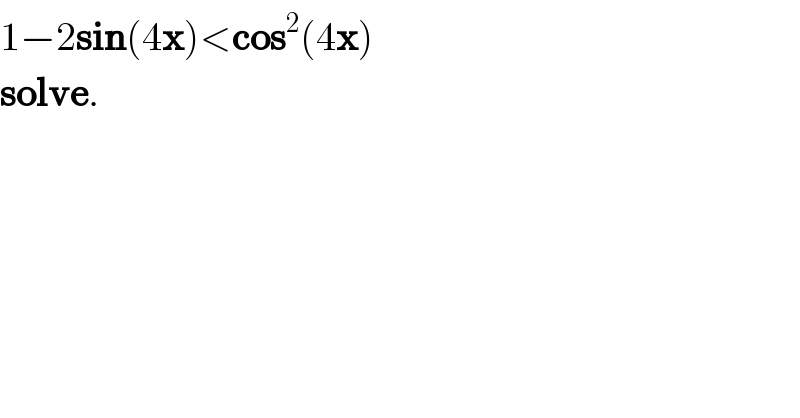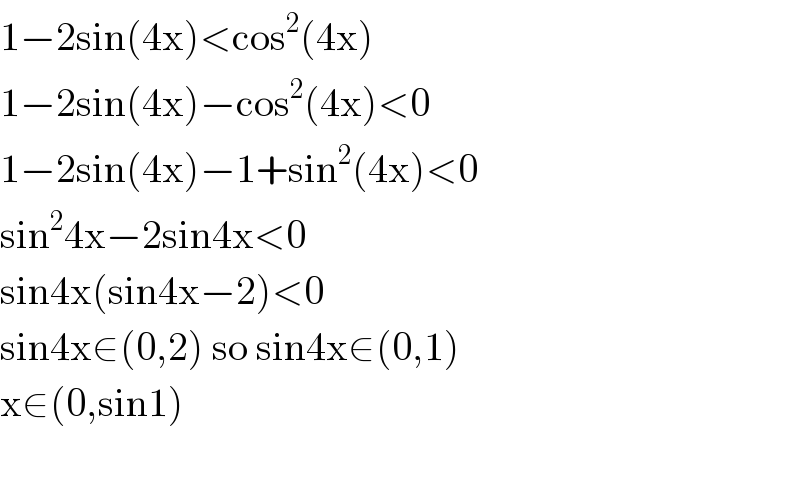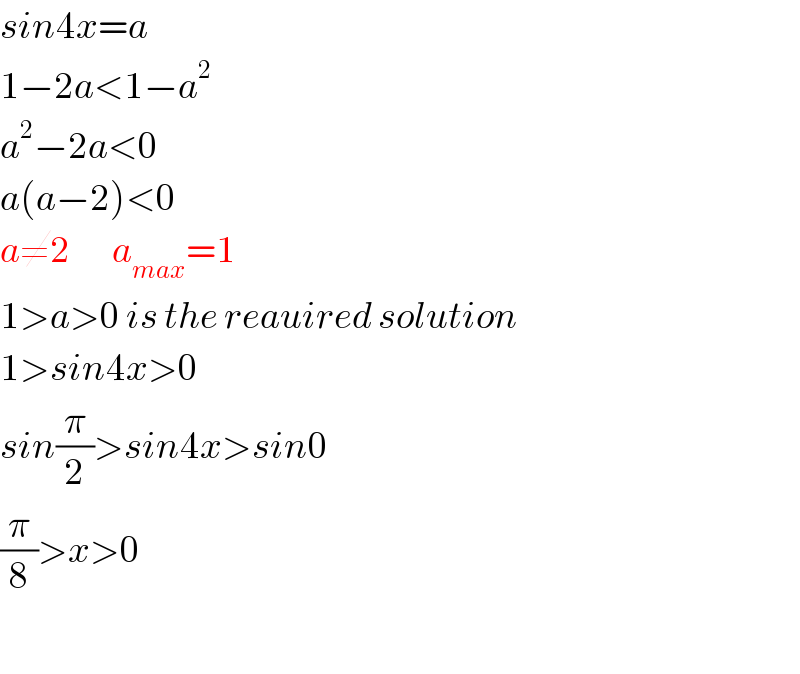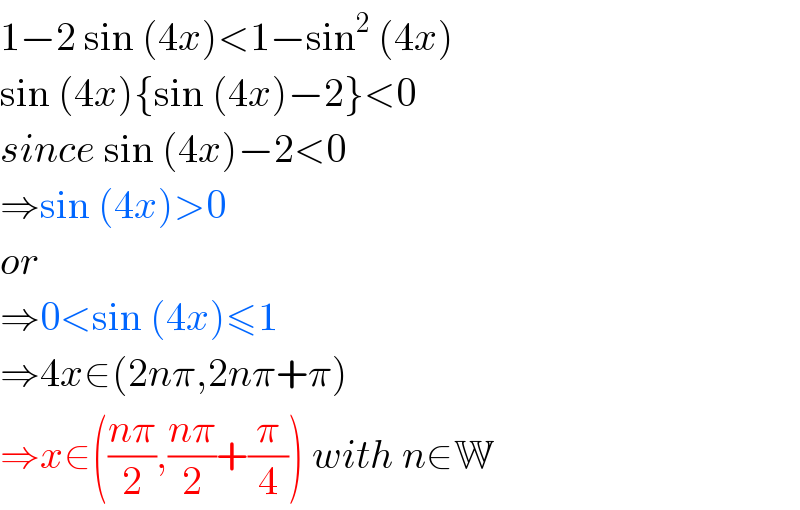
Question and Answers Forum
Question Number 57357 by ANTARES VY last updated on 03/Apr/19

Commented bybshahid010@gmail.com last updated on 03/Apr/19

Commented bytanmay.chaudhury50@gmail.com last updated on 03/Apr/19

Answered by tanmay.chaudhury50@gmail.com last updated on 03/Apr/19

Commented byANTARES VY last updated on 03/Apr/19

Answered by einsteindrmaths@hotmail.fr last updated on 03/Apr/19
/(2 ));(((2k+1)π)/4)[](Q57367.png)
Answered by mr W last updated on 03/Apr/19

